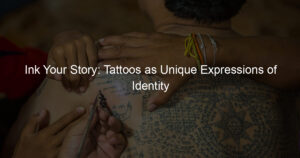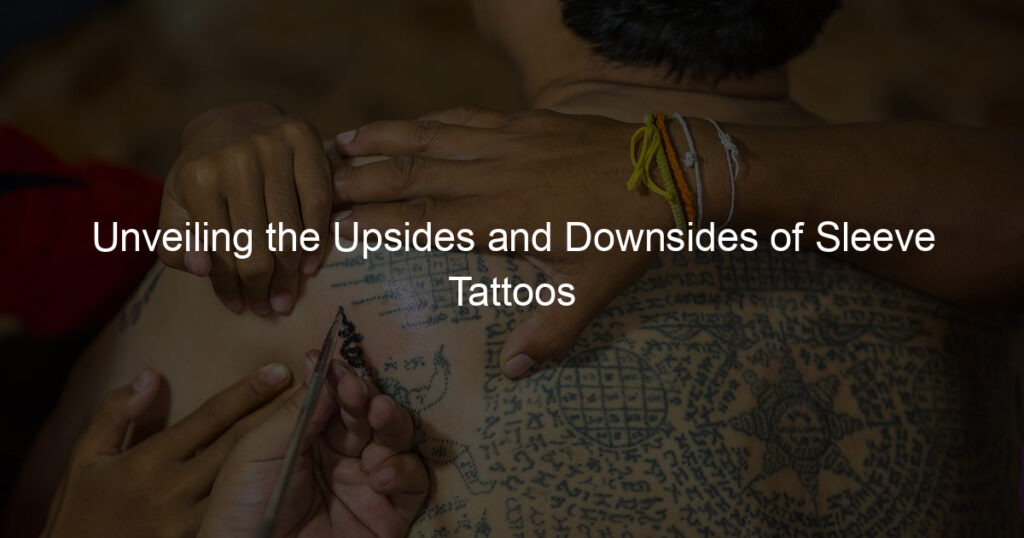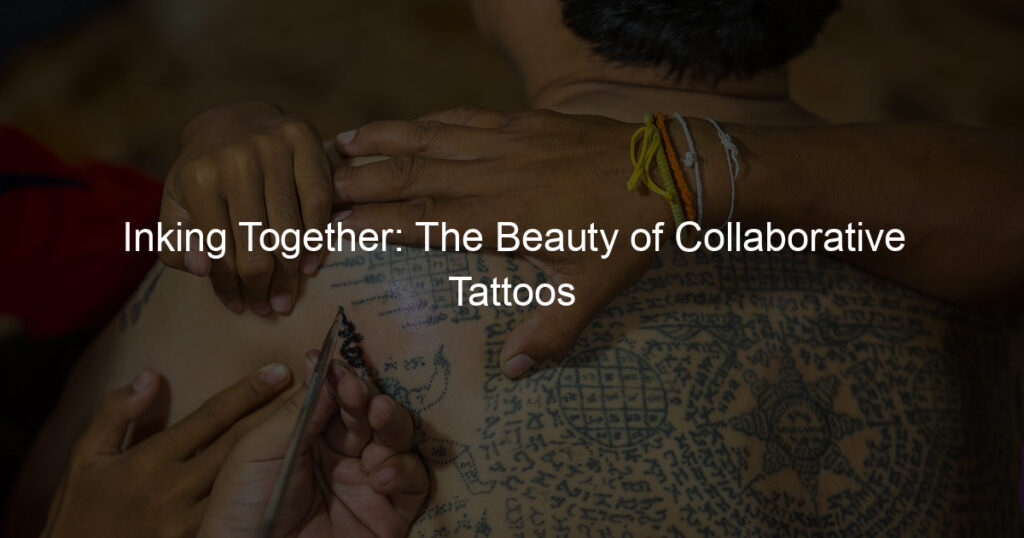Yes, a Muslim can pray with a tattoo. Most scholars, irrespective of sect, agree that repenting the sin is enough if getting rid of the tattoo is too complicated and painful.
Some Muslim faithful believe that one should remove tattoos painlessly and safely without scarring the body.
Can Muslims Get Tattoos?
Tattooing is a controversial topic around the world. In Islam, getting a tattoo depends on the teaching one follows.
Sunni followers believe tattoos are forbidden, while Shi’a followers are open-minded to tattooing. This article covers the reasoning behind both Sunni and Shi’a sects regarding tattoos.
Are Tattoos Haram?
Haram defines anything that is forbidden by Islamic law. In the Quran, there is no mention of tattoos, but the Prophet did in the Hadith.
Sunnis follow the Hadith, where the Prophet (PBUH) curses the one who has a tattoo and the one who draws tattoos.
Shi’a followers are liberal in their view of tattoos, believing that the Quran is complete and does not mention tattoos or anything to do with tattoos.
A senior Iraqi Shi’a cleric and leader known as Sayyid Ali Sistani said that tattoos are not haram, regardless of whether they are temporary or permanent.
Why Are Tattoos Haram?
Tattoos among the Sunni are haram because Allah forbids it. It is considered a major sin because Allah pronounces a curse to whoever gets or administers them.
The Sunnah doesn’t give reasons for the prohibition, allowing some scholars to provide insight into why tattoos are forbidden. They include:
- Tattooing inflicts unnecessary pain and introduces the chances of developing an infection.
- Permanent tattoos permanently alter the natural body, which is the creation of Allah.
- Tattooing is a ‘’deception’’ because it covers the natural body.
What Type Of Tattoo Is Permissible?
Muslims who follow teachings that allow tattooing still need to understand the guidelines that make the tattoo halal.
Temporary tattoos
Temporary tattoos do not permanently alter the natural body, thus permissible in Islam. Islam scholars state that halal temporary tattoos should not last more than three weeks. Anything more would be changing the creation of Allah for a long time, making them haram.
Therefore, forms of beautification like Bridal Mehndi and Henna are permissible because they fade away within a few weeks.
On the other hand, methods such as microblading eyebrows, fall under permanent tattooing because they last six months. These methods are impermissible in Islam, as it would take the skin a long time to regain its natural form.
Conditions for Temporary Tattoos To Be Halal
Temporary tattoos require strict adherence to Islamic rules to be deemed halal. We have listed the conditions below.
1. Tattoo Must not Harm the Body
One major sin in Islam is causing harm and pain to your body. It is clear in the Quran that Allah forbids anyone from killing themself.
2. The Tattoo Must Be Free from Profanity or Obscenity
Profanity and vulgarity do not represent true Muslim principles. It is written in the Prophet’s (PBUH) Hadith that ‘’The believer does not slander. Nor curse, nor commit indecency or profanity, nor is he foul.’’
To be halal, temporary tattoos should be free from profanity, obscenity, swear words, insults, and other vulgar language.
3. The Tattoo Must not Be of Animate Creatures
In Islam, drawing pictures of animate creatures is forbidden, including drawings of animals, humans, mythical creatures, angels, birds, etc.
Nevertheless, pictures of nature, like mountains, trees, heavenly objects, etc., are permissible, provided no addition of faces.
4. The Tattoo Must Be Permeable
Ritual ablution is one of the preparations for prayer in Islam. It is commonly known as wudu among Muslims and is meant for purification or dedication.
Water must touch the skin when performing wudu. So if a tattoo is impermeable, the wudu is undermined.
It is, therefore, important to ensure that temporary tattoos do not create a layer of impermeable ink that would prevent water from reaching the skin.
What Should a Muslim Who Wants To Get A Tattoo Do?
Tattooing is a form of body art or expression that many find beautiful. So, there is nothing malicious about Muslim finding tattoos attractive.
It is advisable for a Muslim wanting a tattoo to seek knowledge and understanding from an Imam and, above all, pray for guidance from Allah.
Final Thoughts
Most religions are based upon rules that no person can change. One such rule in Islam is that all Muslims must pray five times daily.
So, what happens to Muslims who have tattoos? Are their prayers invalid? We have prepared this article to cover some of these questions that frequently cross the mind.
Finally, to tattoo or not tattoo is up to the individual to conclude whether their beliefs allow it and do according to those beliefs.














